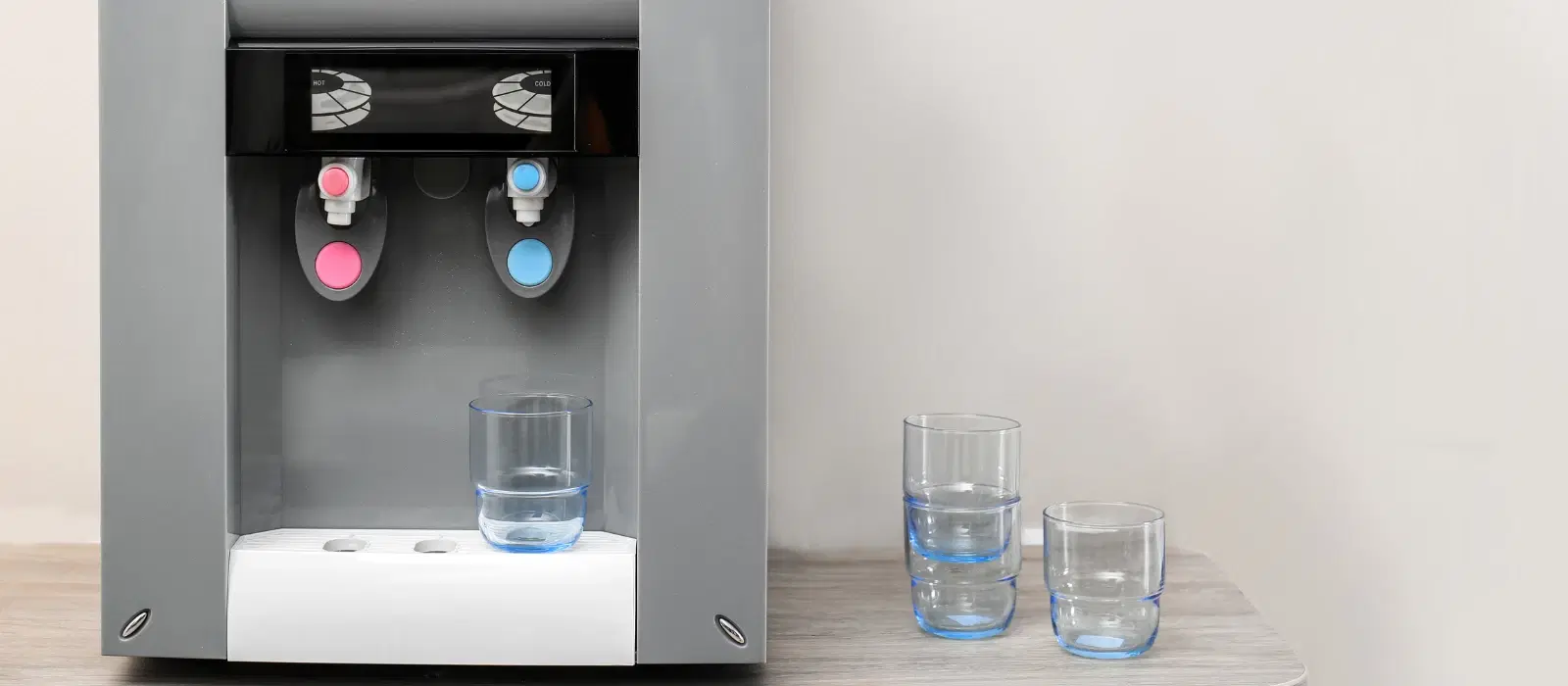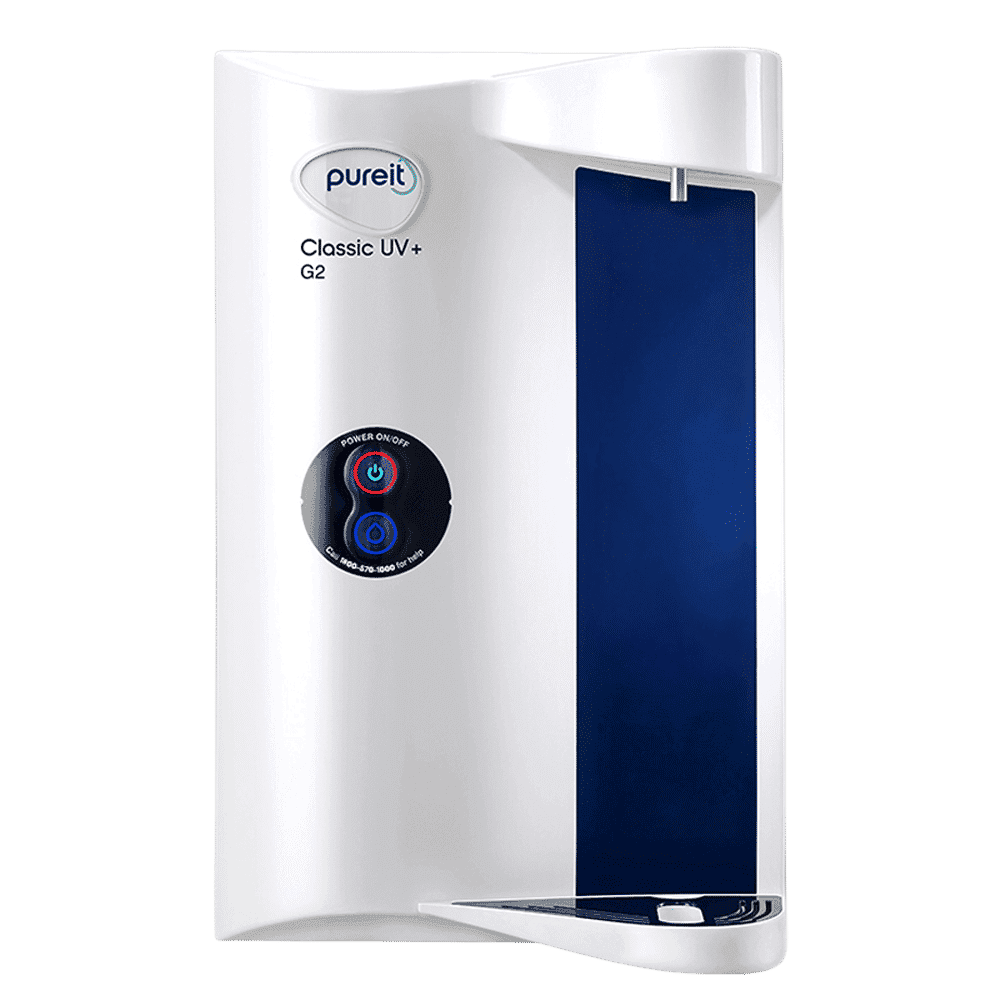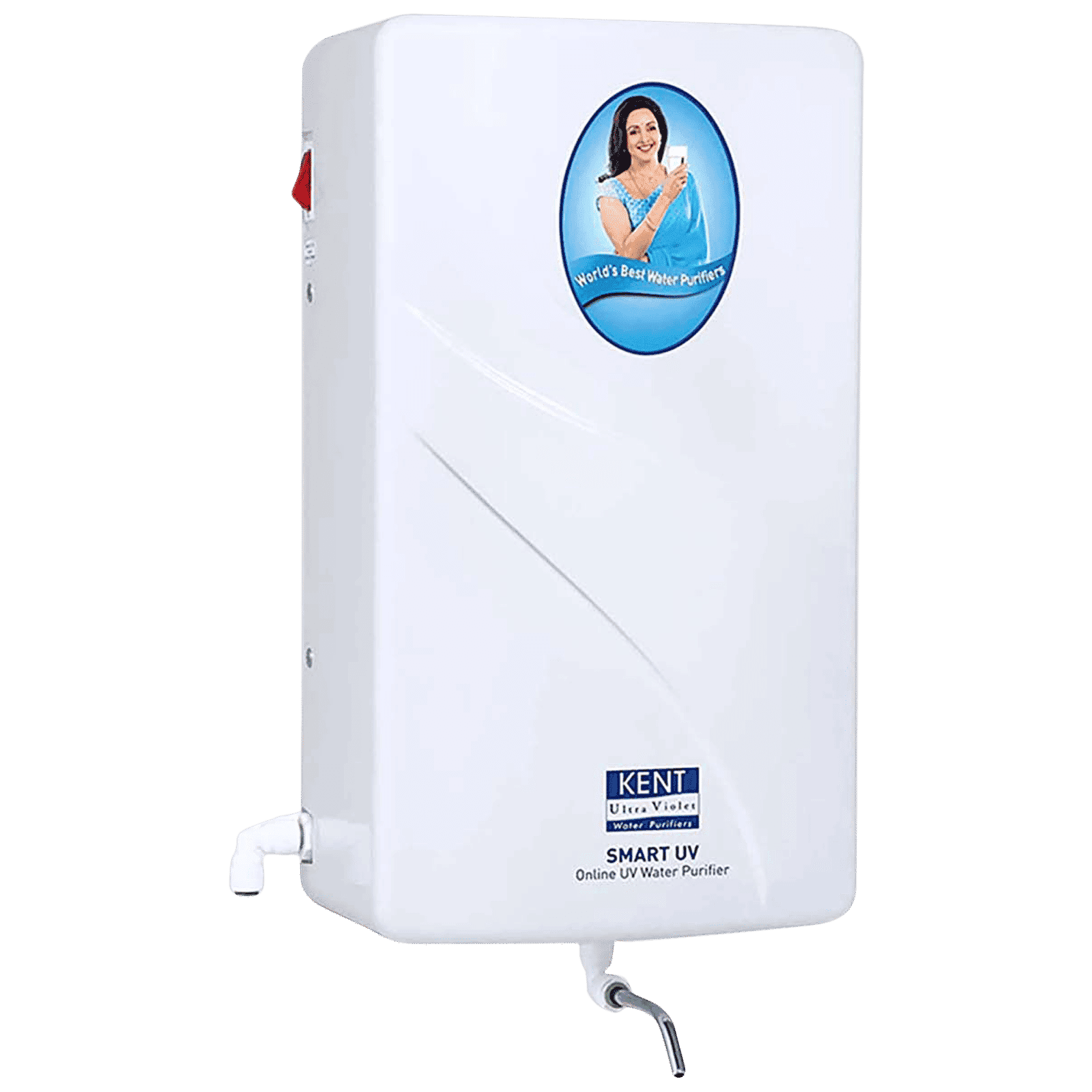
Home Appliances
•05 min read

Buy Pureit Classic UV Water Purifier with Sleek And Covered Design (White) online at best prices from Croma. Check product details, reviews & more. Shop now!
In a world where clean drinking water is an essential part of a healthy lifestyle, understanding the mechanisms behind advanced water purification systems can be a game changer. Many households struggle with confusing terminologies such as UV and UF water purifier means, making it hard to choose the right system. This post will break down the essential methods behind UV and UF technologies, explain how they work, compare their functionality, and explore the advantages they offer, ensuring you have all the clarity you need to decide on the best water purifier for your home.
UV, or Ultraviolet, is a technology that employs ultraviolet light to deactivate harmful pathogens like bacteria and viruses. It is a chemical-free process that uses light to ensure the water you drink is free from many dangers. On the other hand, UF, which stands for Ultrafiltration, uses membranes to filter out larger particles and microorganisms. This physical barrier prevents sediment and impurities from contaminating your drinking water. In essence, combining these two methods addresses two important angles—UV water purifier benefits include effective pathogen control, while the uf water purifier explanation highlights how suspended particles are kept at bay.
Each of these technologies shines when used separately, but together they create a robust system capable of tackling a diverse range of water contaminants. The ultraviolet process eliminates microscopic organisms, and the ultrafiltration technique physically removes larger impurities. This uv vs uf water purifier comparison demonstrates that when used in tandem, these systems offer a comprehensive solution that ensures clean and safe drinking water regardless of the source.
The operation of a UV water purifier is rather straightforward. When water passes by a UV lamp, the high-intensity light disrupts the DNA of microorganisms, rendering them inactive. One of the most appealing aspects of this technology is that the purification occurs without the use of chemicals, making it a safe and environmentally friendly option. Additional advantages of uv water purifier benefits are the low maintenance requirements and its hassle-free operation—a perfect solution for those who prefer a more sustainable lifestyle.
The ultrafiltration process involves water passing through specially designed membranes with very fine pores. These pores are small enough to filter out even tiny suspended particles and microorganisms. A significant benefit of uf water purifier technology is its ability to work without electricity in some cases, making it particularly useful in areas that occasionally face power shortages. This feature ensures reliability even when standard operating conditions are not met.
Did You Know?
UV water purifiers can eliminate up to 99.99% of harmful microorganisms in your drinking water, while UF purifiers excel at filtering out sediment and larger impurities. Together, they create a powerhouse solution for clean water that many households benefit from.

Buy Aquaguard Enrich Astor 6L RO + UV + Alkaline 2X Water Purifier with Mega Sediment Filter (Black) online at best prices from Croma. Check product details, reviews & more. Shop now!
The core difference between these two systems lies in how they tackle contaminants. UV technology specifically targets and deactivates pathogens with ultraviolet light, whereas UF systems rely on physical filtration to remove impurities. This difference in methodology means that the uv uf water purifier means discussion should always consider the quality of your water source, as well as the specific contaminants in your local supply.
Determining which system is better depends largely on individual household needs. If your primary concern is biological contamination, then a UV water purifier offers a chemically safe and efficient solution. However, if you are dealing with water that contains significant suspended particles, the UF water filtration process might be more appropriate. Often, opting for a combination of both technologies is the recommended approach to ensure comprehensive purification tailored to your water quality, household budget, and other specific requirements.
UV systems offer numerous advantages aside from eliminating most pathogens. They operate without chemicals, ensuring that the water remains free from unwanted additives. Their design often results in low maintenance and lower operational costs, making them an attractive investment in the long run. Moreover, these systems are eco-friendly, contributing to a sustainable lifestyle.
The ultrafiltration technology is especially efficient at removing larger impurities such as suspended solids and debris. Its design is relatively simple, ensuring ease of maintenance and affordability. These features, coupled with the ability to work effectively in environments with unstable power supply, position UF water purifiers as a practical choice for many households. The process not only improves water clarity but also ensures that essential minerals remain in the water.
When integrated, UV and UF technologies complement each other, offering a dual-layer defence against a wide range of contaminants. The synergy of both systems guarantees that while one takes care of microorganisms, the other tackles sediment and particulate impurities. This combination provides a balanced and trustworthy water purification method that addresses multiple issues specific to different water sources.

Buy KENT Smart UV Water Purifier with 4 Stage Purification (White) online at best prices from Croma. Check product details, reviews & more. Shop now!
Selecting the best water purifier for your home involves evaluating various factors such as the quality of your water supply, Total Dissolved Solids (TDS) levels, budget constraints, and the availability of electricity. For urban and semi-urban settings where water contamination can vary, understanding uv uf water purifier means is crucial. Combining technological advancements with practical requirements can help in making a well-informed decision. Additionally, opting for systems that offer reliable after-sales support and comprehensive warranties ensures peace of mind in the long term.
When compared with other water purification methods like reverse osmosis (RO) and TDS controllers, UV and UF systems have unique advantages. While RO systems are highly effective for water with high TDS levels, UV and UF are specifically beneficial when biological contaminants are of concern. Each method has its own set of strengths, and a clear understanding of these water purification methods ensures you select a solution that is tailor-made for your specific needs.
RO is preferable for water with high TDS, while UV-UF systems are ideal for water with biological contaminants and lower TDS levels.
Yes, it effectively eliminates harmful microorganisms and impurities without altering the water’s mineral content, ensuring safe and healthy water.
UF systems cannot remove dissolved salts and chemicals, making them less suitable for water with very high TDS levels.
UV purifiers deactivate pathogens using light, while UF purifiers work by physically filtering out suspended particles, resulting in comprehensive water purification.
By now, it is clear that understanding uv uf water purifier means is fundamental to making an informed choice when investing in water purification technology for your home. Whether it’s the UV technology that provides chemical-free decontamination or the UF method that targets physical impurities, both systems offer valuable benefits that can be tailored to different environmental and budgetary needs. The combination of these two processes often creates the optimum scenario for safe, clean water. As you consider your household’s requirements, keep in mind factors like water quality and usability. The dual approach not only ensures efficient decontamination but also aligns with a sustainable and cost-effective strategy. This creates a pathway for a healthier lifestyle and reflects the trustworthiness of platforms that care about delivering quality everyday solutions.